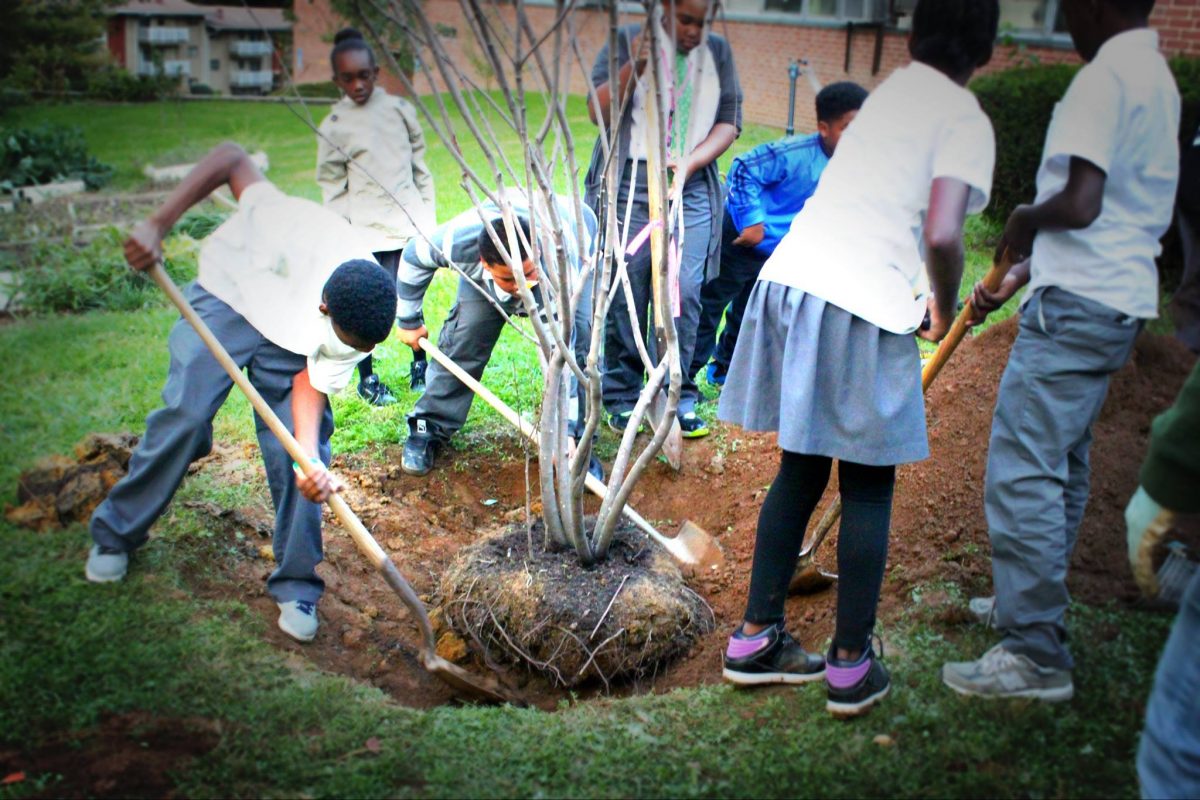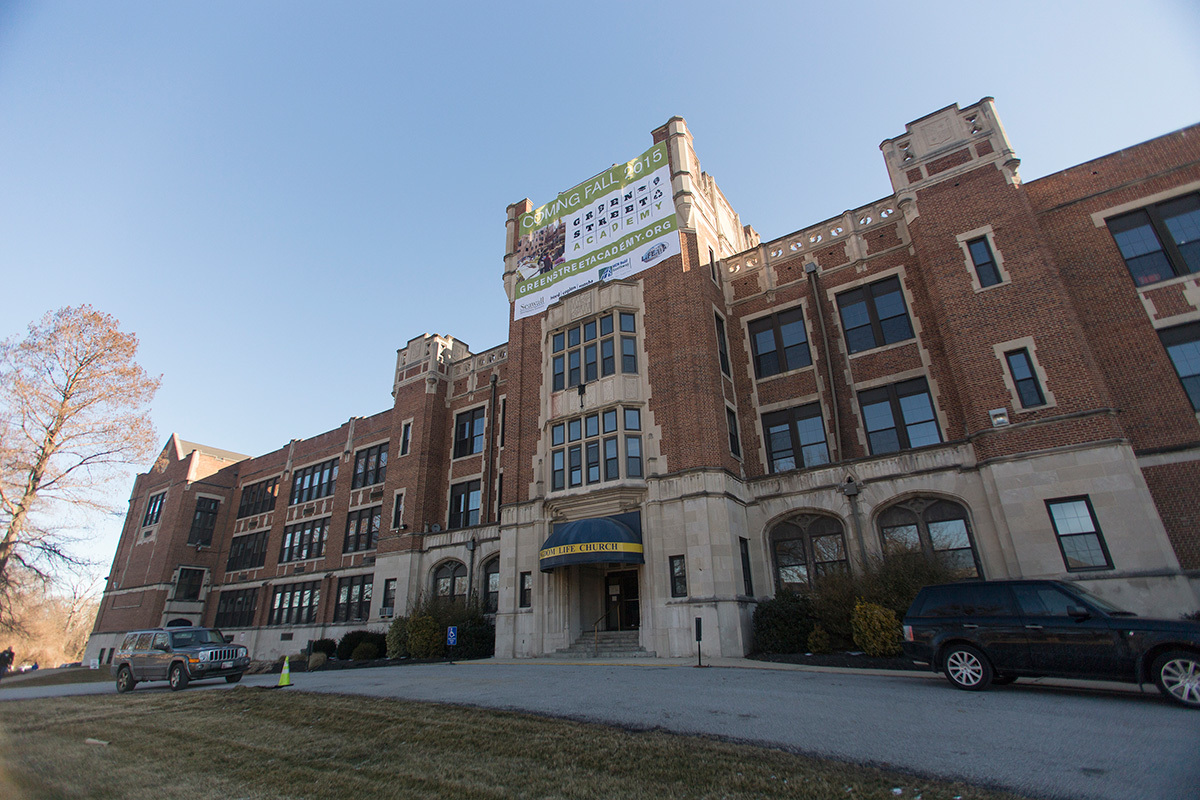
Shuttered 30 years ago, historic Gwynn Falls Park Junior High is about to get a second life.
In 2010, the Green Street Academy opened in West Baltimore with a sustainability-focused curriculum, building, among other projects, a hoop house for growing vegetables, two tilapia tanks, a chicken coop, and koi pond at its current location, which it shares with another school.
Now, after five years, the charter will move next fall into its own building—the historic, 1925-built Gwynn Falls Park Junior High, which has been without students for 30 years. Currently serving 439 students in grades 6-10, the Green Street Academy broke ground two weeks ago on its future home. With 100,000 square feet inside planned for renovation and nearly 9 acres of green space outside, the public city charter school will add 11th and 12th grade classes and ultimately grow to 875 students, says the school’s executive director, Daniel Schochor.
Areas of academic concentration at the school include advanced technology, energy, construction, conservation and agriculture, healthcare, and entrepreneurship, with the idea of enabling students to move directly into the 21st century workforce and/or college. The additional space will also allow the academy to host outdoor classes, as well as add rain gardens and a cistern, and advance its aquaculture and aquaponic programs.
Among its partners, the school already sells its produce to Woodberry Kitchen, Fleet Street Kitchen, and Classic Catering. The school also runs a CSA (community-supported agriculture) program for academy families and others in the community.
“Our students are very appreciative of the fact that they go to a school that has a sustainability focus—they recognize that as both different and useful—and they feel good about their experiences here,” says Schochor. “We’re looking forward to expanding what we do . . . we plan to offer certification and internship programs that give kids a leg up, preparing them whether they go to college or enter a career.”
Since purchasing the North Hilton Street property, the school, operated as a 501(c)3 nonprofit, has put together a $23 million renovation plan, gathering financing from a variety of sources, including a $14 million loan from Bank of America and a $2 million loan from the Reinvestment Fund, a nonprofit that funds community development projects.
The school has also raised $3.5 million in donations and is still looking to raise additional private funds for the project as well.

